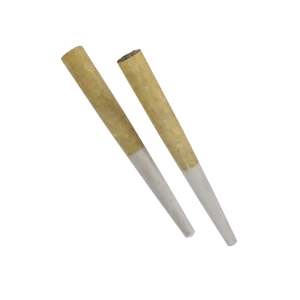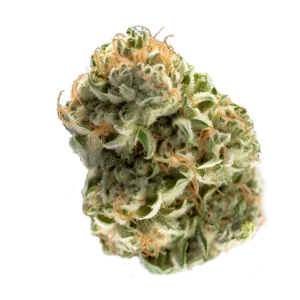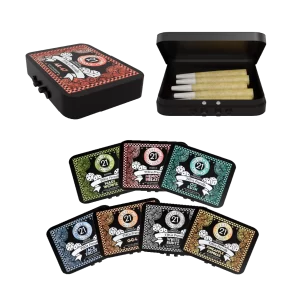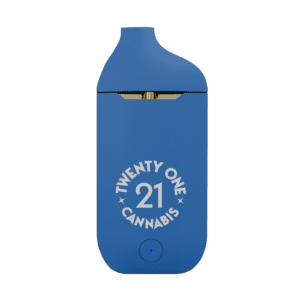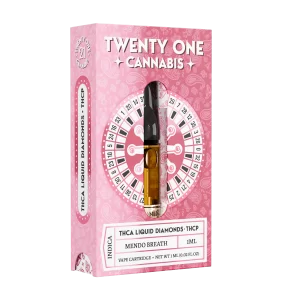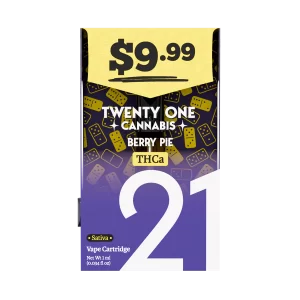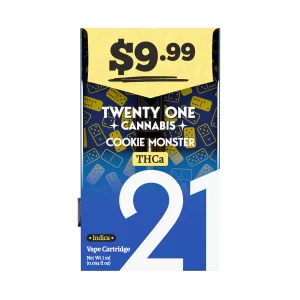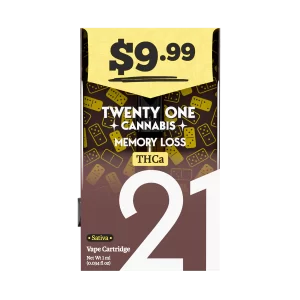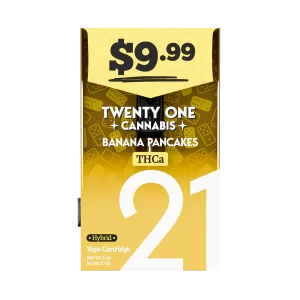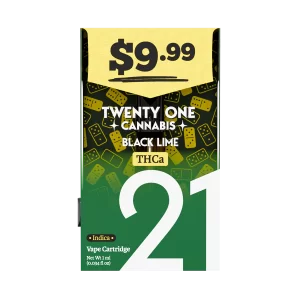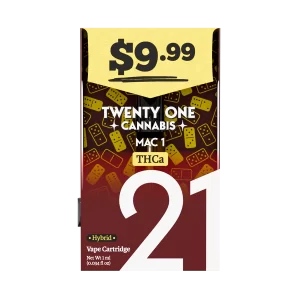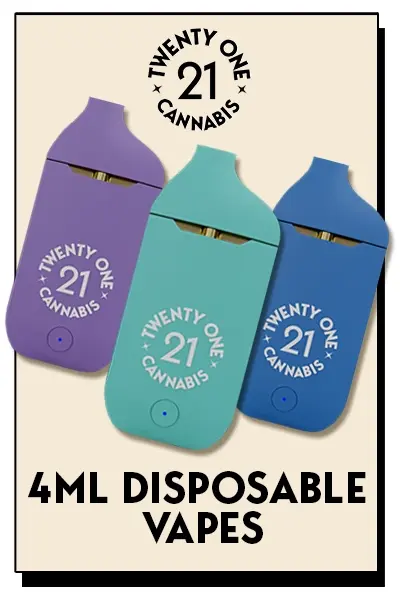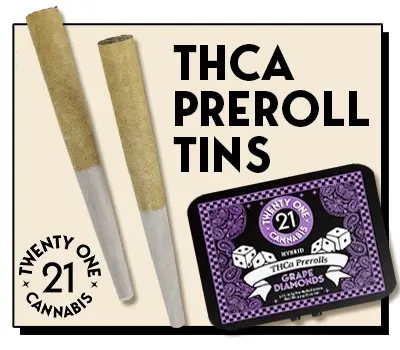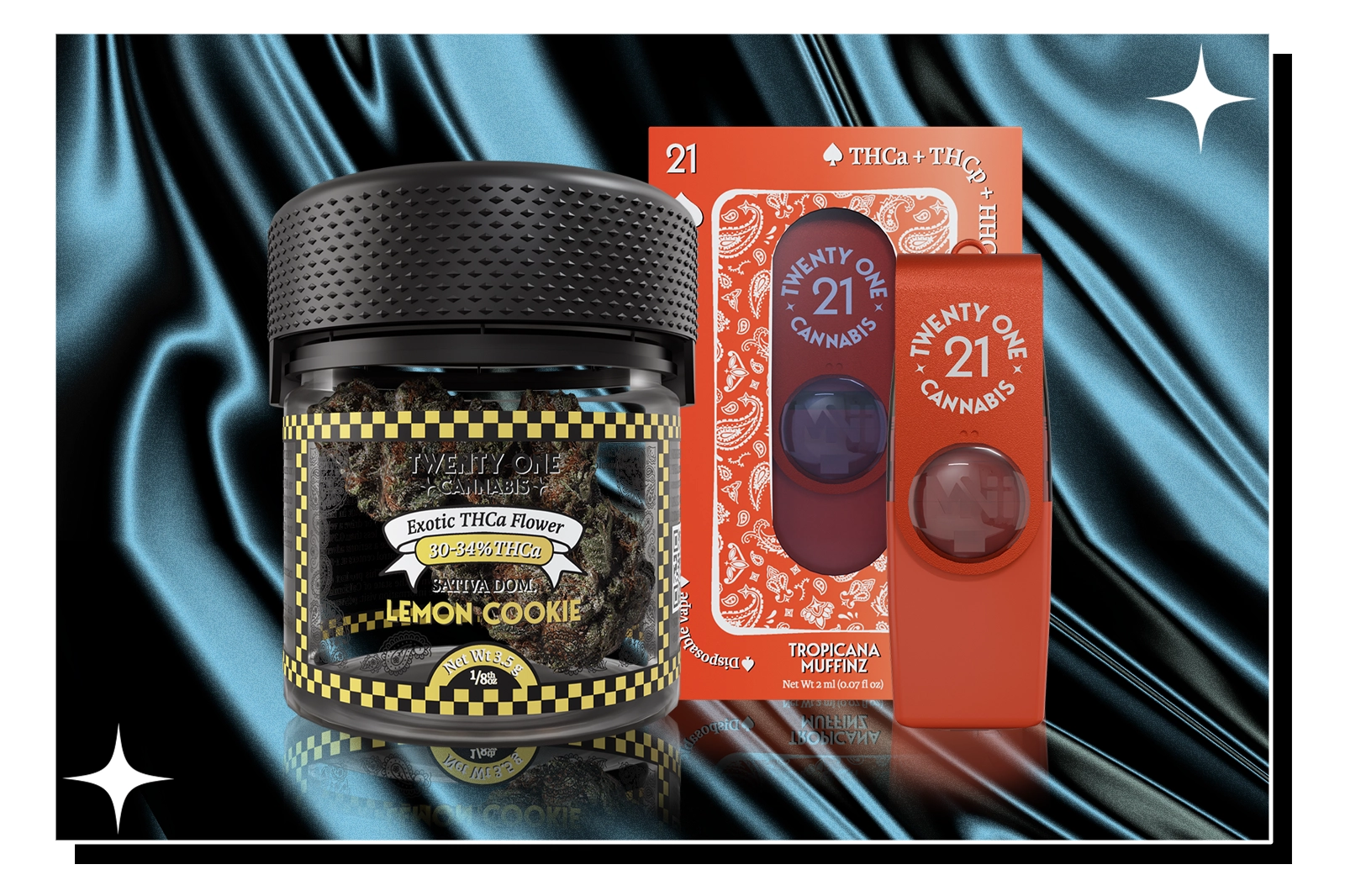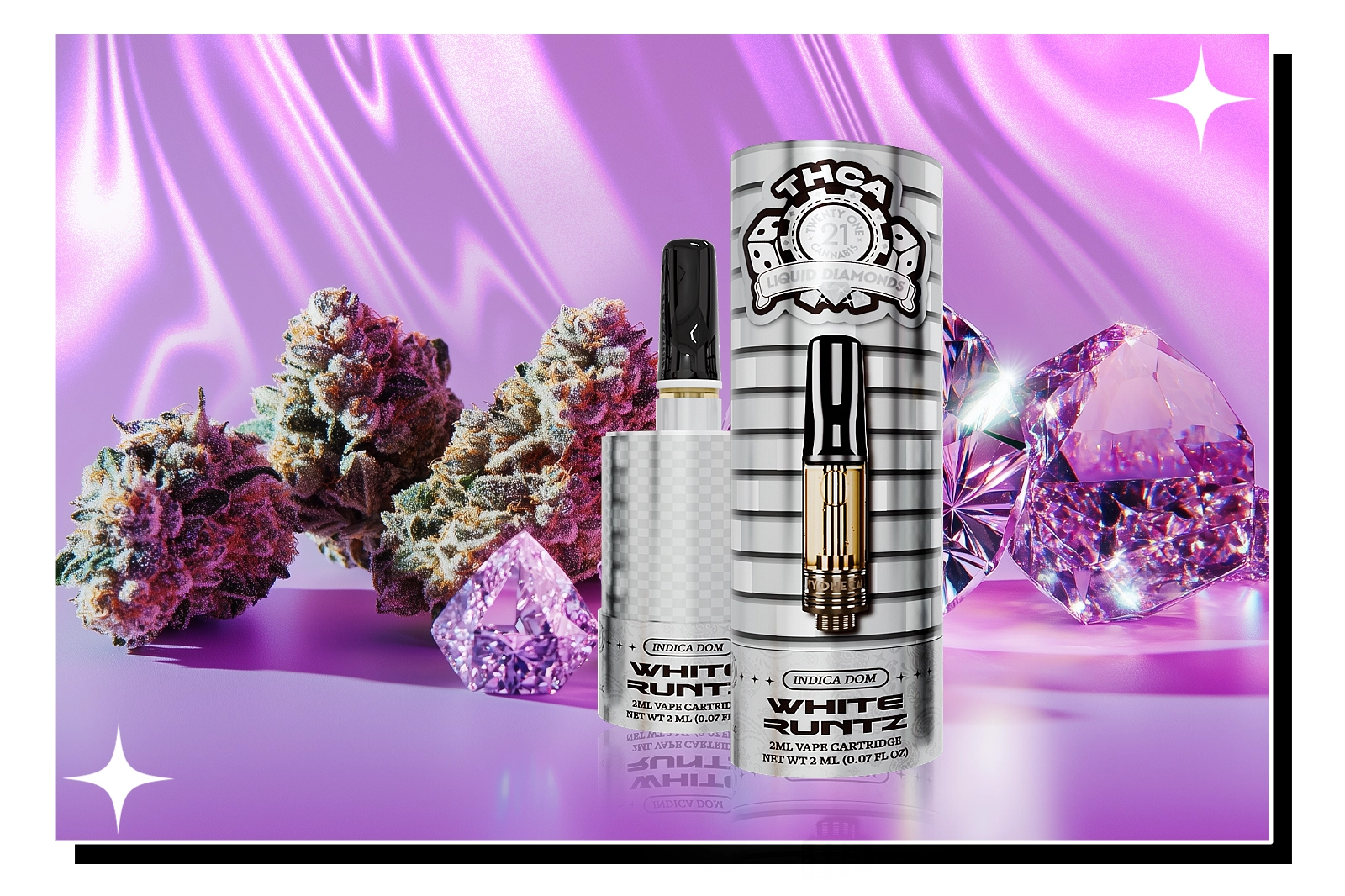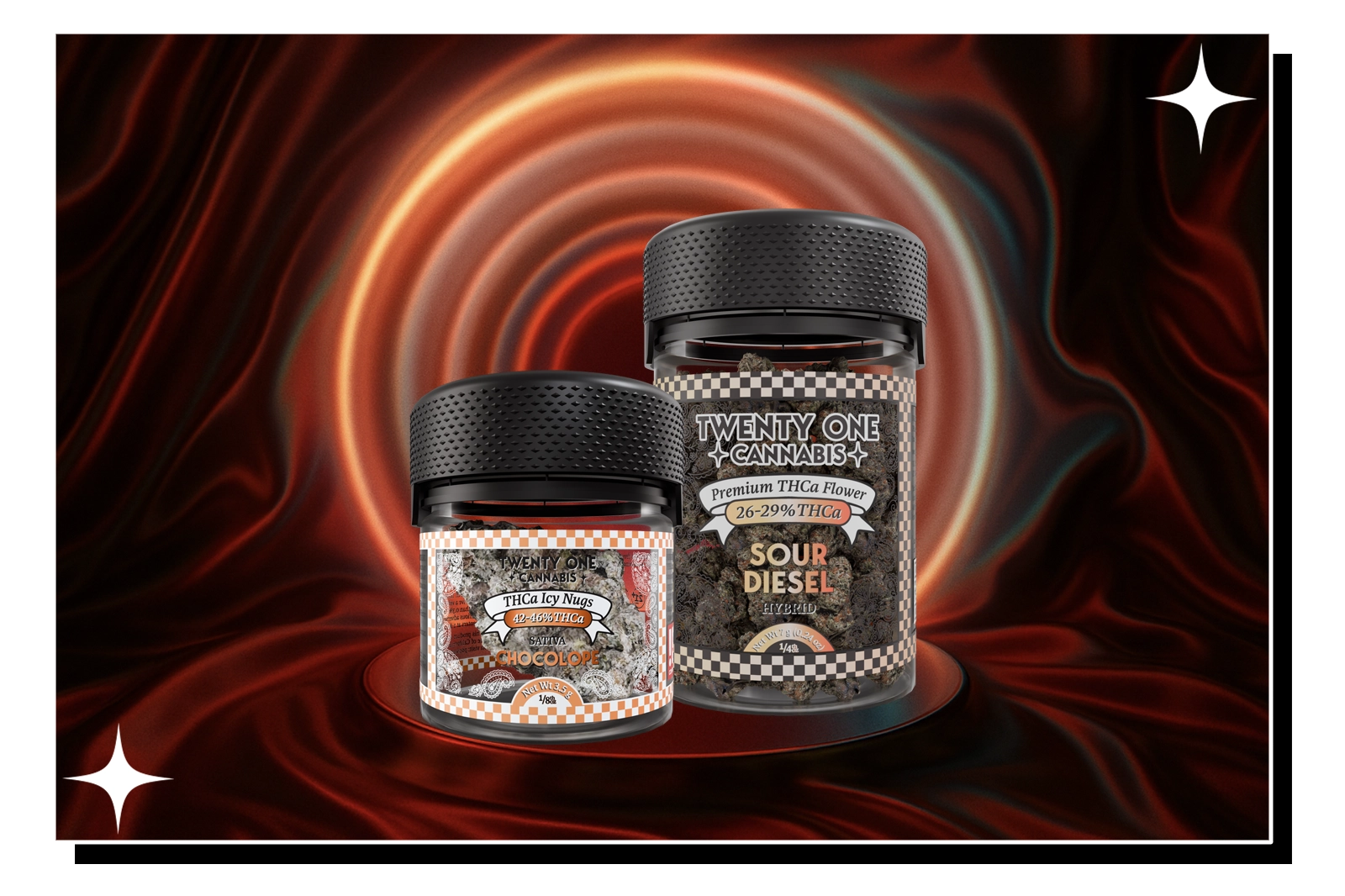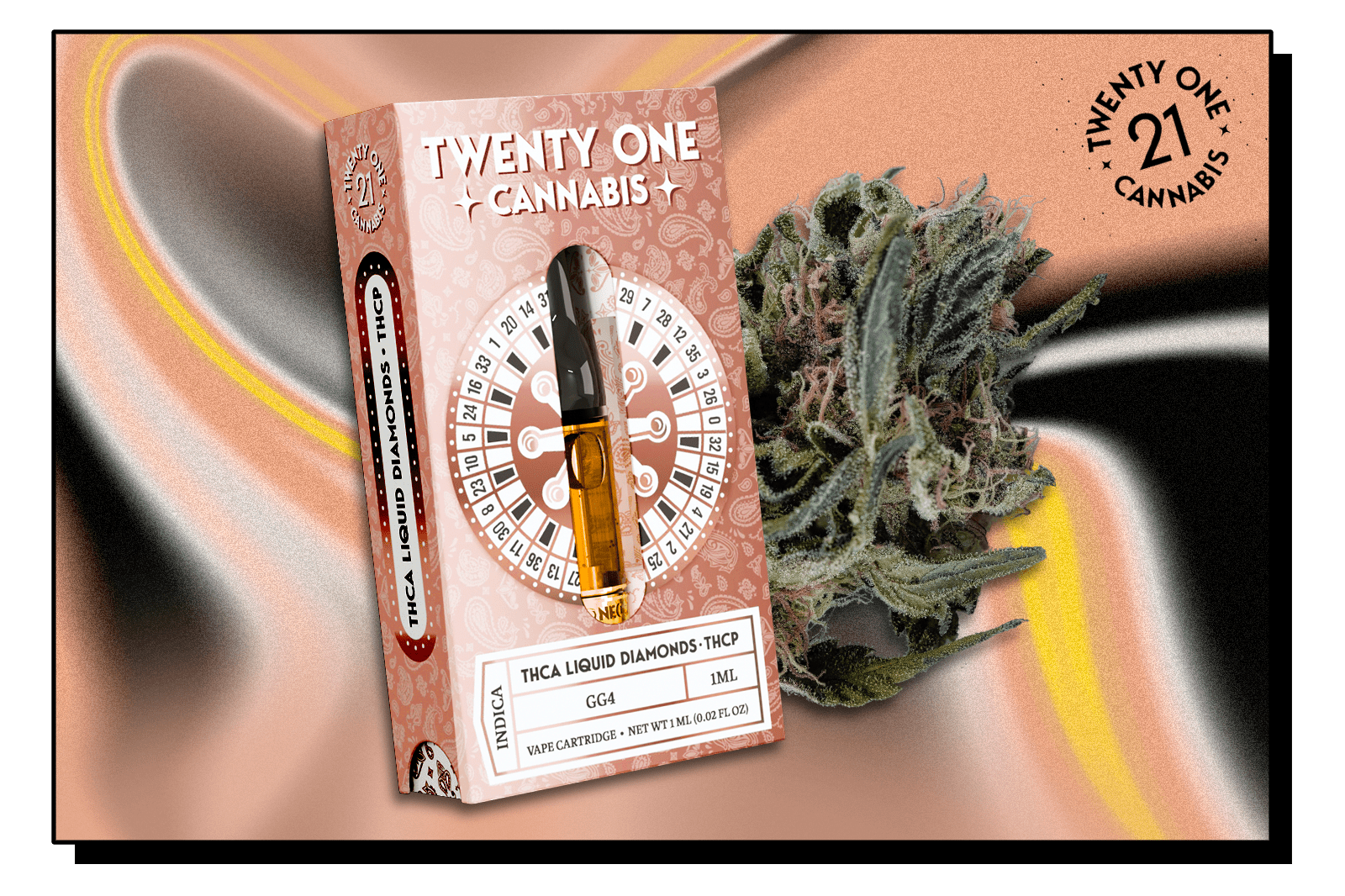
THCA vs Delta-9
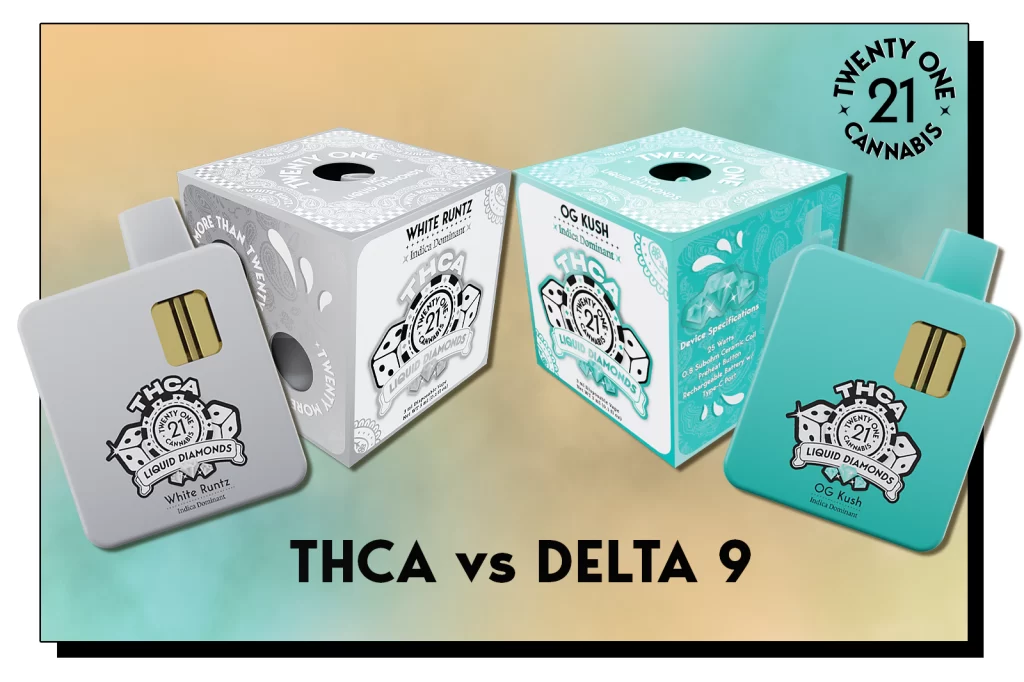
In this Article
The High Rollers Source for THCa Delta 8 HHC
When it comes to the THCA vs Delta-9 debate, there is a lot of confusion among cannabis users. The two are very closely related, but they are not the same. Both are commonly occurring cannabinoids, but they are generally never present simultaneously.
If you’re looking for a quick answer, it’s because THCA is a precursor to Delta-9 THC and actually turns into D9 through a process known as decarboxylation.
If you need a more detailed explanation, here’s a Delta-9 vs THCA comparison to determine what exactly these cannabinoids are, where they are found, what their effects and benefits are, and so much more.
Article Highlights
- THCA and Delta-9 THC are two of the most common cannabinoids in the market.
- THCA is the acidic precursor to Delta-9 THC – Through decarboxylation, THCA turns into Delta-9.
- THCA is not psychoactive, although it has great therapeutic potential, whereas Delta-9 THC produces a high while also having great potential for health benefits.
- The reason behind THCA’s popularity is because of its legal status that sort of resides in a gray area. Due to the fact that THCA is derived from hemp, it is considered federally legal and permitted for use within several states in the US.
If some nice THCA smoke is what you’re looking for, check out our Gorilla Freeze Cake and Gelato Cake Pre-Rolls. They’re super tasty and loaded with THCA! 21 Cannabis is always the go-to source for premium THCA products.
What is THCA?
First, we have THCA or tetrahydrocannabinolic acid, which is the acidic version or precursor to Delta-9. THCA is one of the many cannabinoids found in the cannabis plant, but on its own, it’s not psychoactive, which means that it doesn’t intoxicate you or get you high.
The reason for this appears to be due to its molecular structure. Like Delta-9 THC, THCA also has a pentyl chain but also has a carboxyl side chain. This is thought to prevent THCA from having a high binding affinity with the CB1 receptors (with CB1 receptors being responsible for the high that THC produces).
In order for THCA to become psychoactive and able to produce a high, it must be converted into Delta-9 THC. This is done through a process known as decarboxylation, which exposes the THCA to heat and causes a chemical reaction that results in that extra carboxyl chain disappearing, ultimately allowing THCA to become psychoactive via conversion to Delta-9 THC.
Comparing THCA and Delta-9 can help you choose the best product for your needs. The best website for THCA flower, Twenty One Cannabis, provides detailed comparisons and premium products to enhance your understanding of these cannabinoids.
How is THCA Made?
THCA is a cannabinoid that occurs naturally in cannabis plants, with the production of it being complex. First, olivetolic acid and geranyl pyrophosphate are synthesized by special enzymes, THCA synthase, and turn into CBGA or cannabigerolic acid, known as the precursors to all or most other cannabinoids. This is why it is often called “the mother of all cannabinoids.” More enzymes then convert the CBGA into THCA, which is present in raw cannabis flowers.
What are the Effects of THCA?
THCA doesn’t have any effect per se, not like you would expect from other forms of cannabis, mainly Delta-9 THC. On its own, THCA is not going to produce a high or create any kind of intoxicating effects. However, when activated with heat, THCA starts converting in D9 THC at a molecular level and, only then, can produce the high that cannabis users look for.
What are the Benefits of THCA?
THCA has undergone some fairly extensive investigation, and thanks to this, there’s mounting evidence in terms of all of its therapeutic potential, so let’s go over some of these benefits.
Relieving Inflammation and Pain
One of the main potential benefits of THCA is that it acts as an anti-inflammatory. It is thought to do so by inhibiting the body’s inflammatory responses, very similar to how NSAIDs or nonsteroidal anti-inflammatory drugs work. THCA has the potential to reduce both pro-inflammatory prostaglandins and cytokines, thus allowing for inflammation relief.
This illustrates how THCA may be used to treat a variety of inflammatory conditions ranging from rheumatoid arthritis to skin conditions. On that note, although more research is needed to confirm this, it is also believed that THCA has moderate analgesic or painkilling properties, possibly relieving both pain and inflammation simultaneously.
Antioxidant Potential
THCA, according to current research, also shows its potential as an antioxidant. Antioxidants like THCA help protect the human body from free radicals, agents that cause oxidative stress in the body, which in turn can lead to various serious chronic health conditions.
Antiemetic and Anti-Nausea Benefits
THCA may also reduce both nausea and vomiting. It is believed that THCA interacts with various neurotransmitters in the brain, mainly serotonin, which is known for being related to feelings of nausea.
For this reason, THCA is being looked at as a possible treatment to help reduce the negative effects of chemotherapy, helping people eat and preventing extreme weight loss in the process.
Potential Side Effects of THCA
One reason why we like THCA so much is because it’s generally regarded as being safe, and it isn’t known for having any major side effects. You might experience a bit of lightheadedness and some gastrointestinal issues, such as stomach upset and diarrhea, but that’s about it. If you’re responsibly consuming THCA, it should not create any serious side effects.
Best Way to Take THCA
For many people, the easiest way to take THCA is through an edible or tincture. There are plenty of edibles and tinctures out there made with THCA in its raw form that you can consume as is. Personally, we’d recommend going for tinctures because they can be applied sublingually. You just place a few drops under your tongue.
This will allow for very fast absorption, faster than if you were to ingest it. However, ingesting it is really the only other option. This is because THCA has to be consumed raw without being decarboxylated.
If you heat THCA, whether through smoking or vaping, that causes decarboxylation to occur, therefore turning the THCA into Delta-9 THC. If you’re looking to reap the potential benefits of THCA without getting high, then this needs to be avoided.
However, if you want to get high, you can purchase THCA flower and smoke it, in which case we recommend checking out either the sativa Lemon Cookie strain or the indica Apple Fritter strain.
What is Delta-9?
We then have Delta-9, otherwise known as Delta-9 THC or Tetrahydrocannabinol. It’s one of the two major cannabinoids found in cannabis plants, along with CBD. Delta-9 THC is the most plentiful psychoactive compound in cannabis, and it’s present in increasing quantities as the years go on, with cannabis getting much stronger with time.
It’s the substance that produces that beautifully intoxicating effect. It gets you high. Some strains of cannabis may contain up to 30% THC or more.
The structure of Delta-9 THC is similar to that of THCA, but as we covered above, thanks to decarboxylation, the extra carboxyl chain THCA has is no longer present on the Delta-9 molecule. This is what is thought to be responsible for its psychoactive effects because its structure allows it to interact with CB1 receptors, thus causing a high.
How is Delta-9 Made?
As should be clear by now, Delta-9 THC is made through a conversion process known as decarboxylation. THCA has to be heated up to at least 220 degrees Fahrenheit for around 30 minutes.
All Delta-9 starts off as THCA, and without that decarboxylation process, you wouldn’t have any THC at all, and you wouldn’t get high. When you smoke THCA flower, it actively decarboxylates with every puff, thus converting THCA into Delta-9 THC as you smoke.
What are the Effects of Delta-9?
This is where things start to get interesting because if you’re looking for the psychoactive effects of cannabis, D9 is where it’s at. Delta-9 THC interacts with the CB1 receptors, which results in an intoxicated feeling. Beware that THC may affect everyone differently, so while a high might feel one way for me, it could feel different for you.
Generally, you can expect Delta-9 THC to produce both a body high and a cerebral high. The body feels heavy, sedated, tingly, relaxed, and often pain-free.
The head or cerebral high is often characterized by euphoria, happiness, mental calm, and relaxation, and sometimes you may feel uplifted or energized. Remember that sativa strains tend to produce more of an energizing cerebral high, whereas indica strains usually produce more of a sedating body high.
What are the Benefits of Delta-9?
Yes, most people enjoy Delta-9 THC for the high it produces, but it also comes with some great therapeutic potential worth looking into.
Inflammation Relief
There is mounting evidence that indicates that several cannabinoids, including THC, are able to reduce some of the signaling proteins that cause inflammation, including cytokines and chemokine. The result is that Delta-9 THC may be able to suppress inflammatory responses, which shows great potential for inflammatory conditions.
Pain Relief
Delta-9 also has the potential to act as a great painkiller. By interacting with the CB1 receptors, Delta-9 THC can possibly produce analgesic effects, which means that pain signals are stopped from making it to the brain.
In this sense, THC doesn’t solve the underlying issue but simply dulls the pain and lets your brain perceive less of it.
Here is an interesting survey that demonstrates that in many cases, Delta-9 THC was similar to significant doses of codeine in terms of its pain-killing potential, a well-known prescription painkiller.
Anti-Nausea & Appetite Stimulation
Delta-9 THC may also be able to reduce nausea and vomiting. It’s not fully understood how Delta-9 prevents or reduces nausea, but one theory is that Delta-9 results in the stimulation of various neurotransmitters, mainly serotonin, which can have a positive impact on feelings of nausea. THC can potentially increase serotonin levels, and higher serotonin levels are often associated with reduced nausea. On that note, Delta-9 also stimulates appetite by increasing hunger hormone levels, mainly Ghrelin.
Sleep Aid
Yet another potential benefit of Delta-9 is for people who have trouble sleeping, whether occasionally or regularly. Evidence shows that when Delta-9 binds with the cannabinoid receptors, it increases adenosine, a sleep-promoting hormone, while suppressing the brain’s arousal system. The result is Delta-9 making you sleepy.
Potential Side Effects of Delta-9
Delta-9 THC is regarded as being quite safe, although higher levels of it may result in feelings of paranoia or anxiety. Other common side effects include feeling drowsy, mentally impaired, a loss of fine motor skills, red eyes, dry mouth, and occasional gastrointestinal upset.
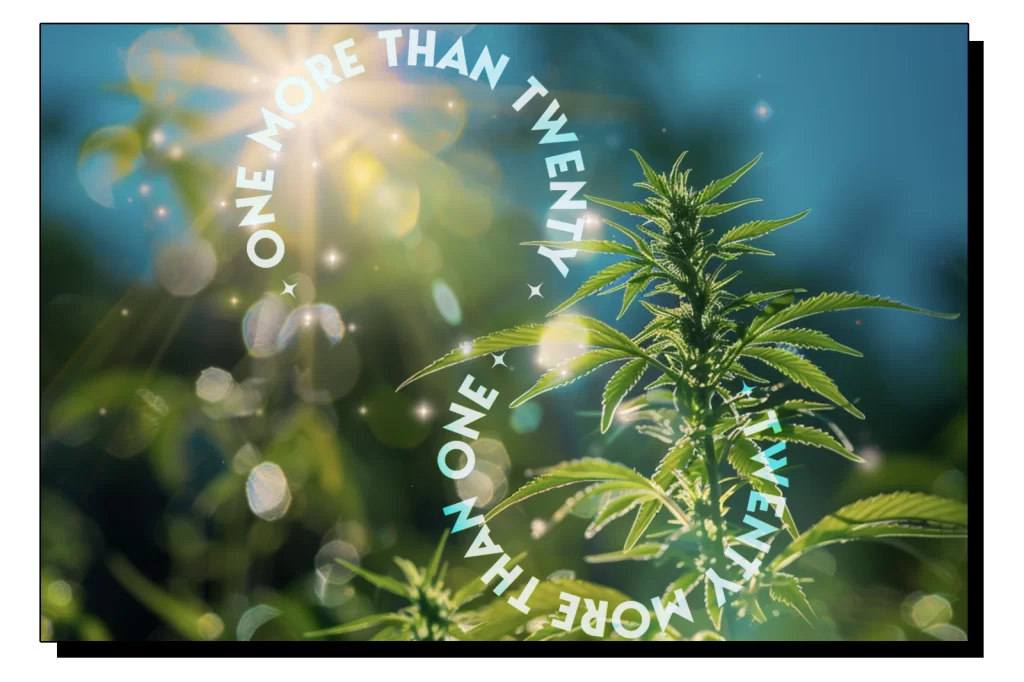
Best Way to Take Delta-9
The best way to take Delta-9 THC depends on what your needs and preferences are. If you want something that hits fast, as soon as you consume it, then we recommend going for some Delta-9 flowers or extracts that can be vaped. Inhaling Delta-9 is the fastest delivery method.
Gaining insights into isomerization by-products when comparing THCA vs Delta-9 can be very useful when deciding between these two cannabinoids.
However, if you’re looking to get super stoned, Delta-9 is best ingested. When you ingest THC, it is processed by the liver, which results in a much stronger kick. Ultimately, this means that while edibles take up to two hours to kick in, their high is much stronger and longer lasting.
THCA vs Delta-9: Effects
Now that we’ve covered the basics about both Delta-9 and THCA, let’s do a quick side-by-side comparison of the two. First and foremost, Delta-9 THC gets you high, but THC does not, something we’ll summarize in greater detail in the below section.
However, as far as the potential benefits are concerned, it appears as though Delta-9 THC might be a bit better overall. THCA is thought to have potential as a pain and inflammation reliever, an anti-proliferative, an antioxidant, and an antiemetic.
Delta-9 THC is regarded as being a strong analgesic and anti-inflammatory, an antiemetic and hunger stimulator, a sedative, and a sleep aid, among others. As you can see, the potential benefits of both appear to be fairly similar.
THCA vs Delta-9: Potency
This is a bit of a tricky subject because, technically speaking, THCA is not potent at all. Once again, it doesn’t produce a high or make you feel intoxicated. On the other hand, Delta-9 THC does exactly that. It makes you feel high. In this sense, Delta-9 is the more potent of the two.
The issue here is, of course, that you can’t have Delta-9 without THCA, as THCA turns into Delta-9 through the application of heat. Can we really say that Delta-9 is more potent than THCA if one turns into the other? The bottom line is that one gets you high, and the other does not.
Learning about the unique characteristics of THCA and Delta-9 can guide you in making the right selection. The best site for THCA flower, Twenty One Cannabis, offers extensive resources and top-tier THCA products to help you make an informed choice.
THCA vs Delta-9: Reddit Weighs In
If you want this issue summed up in just a few sentences, let’s see what this particular Reddit user has to say about the THCA vs Delta-9 debate (we chose this comment because it really sums it all up perfectly).
“THCA is short for tetrahydrocannabinol acid, a non-psychoactive cannabinoid. It’s one of the hundreds of chemical compounds in the marijuana plant. THCA is the acidic form of THC, but unlike THC, it won’t produce a high.
Though you can’t get high by directly consuming THCA, it still affects your weed experience. THCA benefits include numerous positive health effects. The compound could also convert into THC with heat exposure via smoking, cooking, dabbing, or vaping weed.”
THCA vs Delta-9: Legality
According to the 2018 Farm Bill, any cannabinoid product that is made from hemp-derived CBD should be legal at the federal level so long as the plant the CBD came from, as well as the final product, both contain less than 0.3% Delta-9 THC. So, at a federal level, hemp-derived D9 THC is legal.
On the other hand, we have THCA, which, technically speaking, does not contain any Delta-9 THC. Yes, THCA turns into Delta-9 through heat application, but it is not yet Delta-9 THC.
Call it a loophole if you want, but according to that same Federal Farm Bill, this would imply that THCA products are perfectly legal nationwide. Furthermore, many states follow this same rule, making THCA a cheeky way to work around the D9 THC regulations.
THCA vs Delta-9: Cost
Since Delta-9 is more commonly available, it’ll be the cheaper one. THCA products are still considered a bit of a novelty, so they’re a little pricier and rare to find in dispensaries.
THCA vs Delta-9: Which One is Right for You?
What it really comes down to here is whether you want to get high or not. Thanks to all of the evidence we’ve presented, you can see that both THCA and Delta-9 THC have some similar benefits, although Delta-9 THC’s benefits are likely more pronounced.
Both show great potential on many fronts, both mental and physical. If it’s a high you’re going for, then Delta-9 is the way, but if all you want is to take advantage of the potential health benefits that cannabis has to offer, then THCA is right for you.
If you want some really potent cannabinoid products and trying something new that tickles your fancy, check out the White Runtz Liquid Diamonds and the OG Kush Liquid Diamonds in our huge arsenal of legal products at 21 Cannabis. You can also try some tasty pre-rolls, like these Lemon AK, AK-47, and Pineapple Express pre-rolls. Just spark them up, and you’re good to go!
THCA vs. Delta-9: Frequently Asked Questions
Is Delta-9 Stronger Than THCA?
Although THCA turns into Delta-9 THC, in their respective states, yes, Delta-9 is stronger than THCA but this can change based on the conditions.
Is THCA Psychoactive?
THCA has a weak binding affinity with CB1 receptors and, therefore, does not get you high without being described.
What Are the Potential Benefits of Delta-9 THC?
Delta-9 THC may be able to reduce pain, inflammation, nausea, and vomiting while also acting as a potential sleep aid.
Sources for this Article
ncbi.nlm.nih.gov/pmc/articles/PMC5510775/
ncbi.nlm.nih.gov/pmc/articles/PMC5627671/
sciencedirect.com/science/article/pii/S0367326X21000903
academic.oup.com/book/27329/chapter/197038916
frontiersin.org/articles/10.3389/fvets.2020.00505/full
onlinelibrary.wiley.com/doi/full/10.1111/add.15253
ncbi.nlm.nih.gov/pmc/articles/PMC9225410/
ncbi.nlm.nih.gov/pmc/articles/PMC6007535/
ncbi.nlm.nih.gov/pmc/articles/PMC2828614/
ncbi.nlm.nih.gov/books/NBK224384/
jpain.org/article/S1526-5900(00)90082-8/
ncbi.nlm.nih.gov/pmc/articles/PMC3165951/
ncbi.nlm.nih.gov/pmc/articles/PMC7220016/
ncbi.nlm.nih.gov/pmc/articles/PMC6200580/
sleepfoundation.org/sleep-aids/cannabis-and-sleep
pubmed.ncbi.nlm.nih.gov/15302527/
jamanetwork.com/journals/jamapsychiatry/fullarticle/482939
usda.gov/farmbill
-
THCa 1ml Vape Cartridge – Berry Pie (Sativa)
$9.99 -
THCa 1ml Vape Cartridge – Cookie Monster (Indica)
$9.99 -
THCa 1ml Vape Cartridge – Memory Loss (Sativa)
$9.99 -
THCa 1ml Vape Cartridge – Banana Pancakes (Hybrid)
$9.99 -
THCa 1ml Vape Cartridge – Black Lime (Indica)
$9.99 -
THCa 1ml Vape Cartridge – Mac 1 (Hybrid)
$9.99
In this Article
Let's be social
More Heavy Hitting Posts
JOIN THE HIGH ROLLERS
Categories
Fabian Raemy

Peer Review by: JJ Coombs
Doctor of Pharmacy, Pharmaceutical Sciences University of Colorado
Co-Founder & CEO at Arvida Labs

